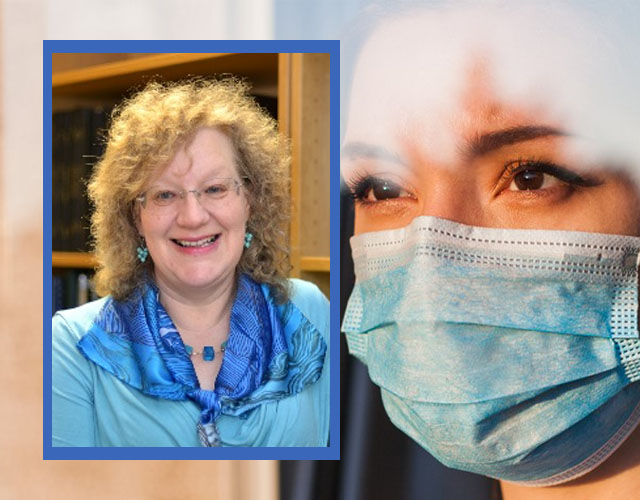Mcr Lit & Phil presents: Covid-19: the importance of history in a global pandemic with Professor Stephanie Snow
- Thu 07 Nov 2024
- 6:30 pm
- £15.00

What is the role of a historian in a health crisis? As Covid-19 became a full-blown pandemic in the spring of 2020, historians across the world produced rapid and imaginative responses, bringing historical perspectives to bear on how people and societies in the past responded to cholera, Spanish Flu, and more recently ebola. They paid much less attention to capturing and preserving the unfolding of Covid-19.
This talk draws on Stephanie Snow’s experience of leading a national oral history project on the UK’s National Health Service that metamorphosed into the creation of a national collection of Covid-19 testimonies in partnership with the British Library between 2020-2023.
History shows that individual and collective memory can fade rapidly after health crises. Recording testimonies in the moment plays a vital role in supporting individuals and communities to find meaning from their lived experiences in the face of complexity and uncertainty. It creates a permanent historical record of a crisis that captures societal responses that were not prominent in public narratives at the time. It also counters retrospective attempts to establish new public narratives of crisis for socio-political purposes.
Critiques of capturing experiences during crisis focus on the potential harm to participants. Snow’s talk will use evaluation data to show how such risks can be minimised if the work is undertaken in a supportive, responsive framework. To conclude, Snow will argue that historians need to be as concerned with preserving the present as they are about exploring the past.
Stephanie Snow is Professor of Health, History and Policy and Academic Lead for Community Engagement and Involvement at the University of Manchester. The early part of her career was spent working on the introduction of anaesthesia to medicine in the 1840s which produced Operations Without Pain (Palgrave Macmillan) and Blessed Days of Anaesthesia (Oxford University Press).
More recently she has focused on contemporary health and medicine including studies of the global reconfiguration of stroke in the 1990s and the history of black and minority ethnic clinicians in the NHS. She currently holds a Wellcome Trust University Award for a project on the history of quality in healthcare which is exploring how this international movement has transformed health, policy and practice at every level.
Since 2017 she has led a national project to create Voices of Our National Health Service, the first oral history collection of experiences and reflections of patients, staff and communities across the 70+ year history of the NHS, including the recent Covid-19 pandemic.


